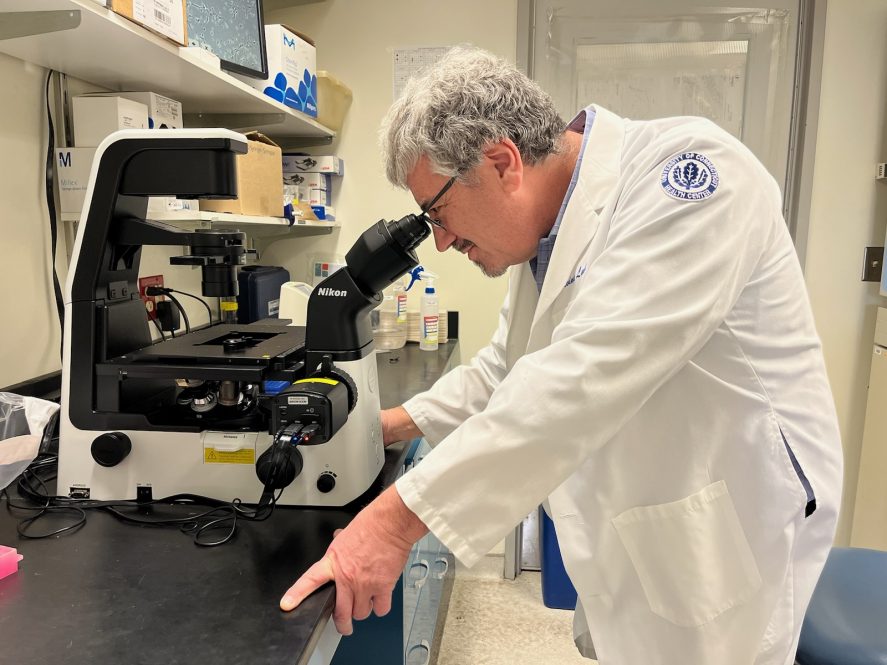Just in time for the Super Bowl, researchers at UConn School of Medicine are part of a big win for autism research.
UConn School of Medicine’s innovative autism research has been prestigiously awarded by the Eagles Autism Foundation to be one of its 22 cutting-edge autism research projects selected to receive a slice of $8.1 million in grant funding raised by fans.
The grant funding was all powered by the proceeds raised by participants for the 2024 Eagles Autism Challenge and the Eagles Autism Foundation’s other annual fundraising initiatives. Impressively, since 2018, 169 autism research projects and community grants have been funded by the Foundation nationally and internationally, which is dedicated to raising funds for innovative autism research and care programs to assist those currently affected by autism, as well as future generations to make a lasting impact in the field of autism.
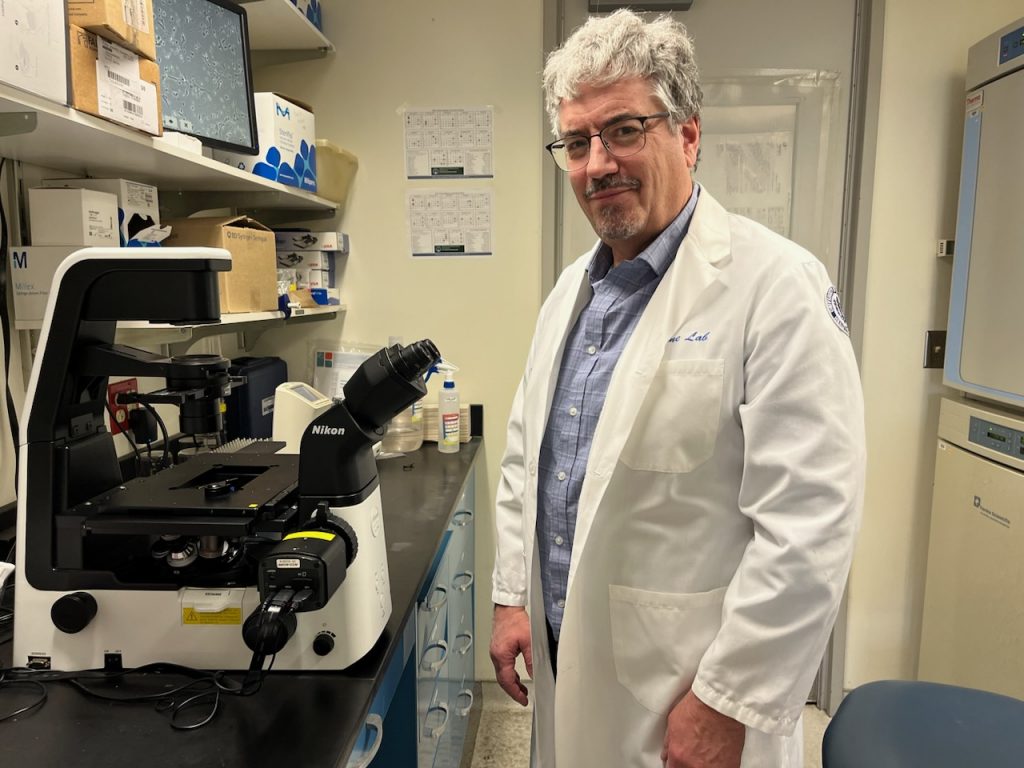
For the last three years, as a proud Eagles fan (and also a life-long Patriots fan) and professor of Neuroscience at UConn School of Medicine, Dr. Eric S. Levine has served on the Eagles Autism Foundation’s Advisory Board as a research expert reviewing submitted research grant proposals.
But last year Levine decided to apply for a grant himself for his own cutting-edge UConn neuroscience research lab’s work exploring autism’s genomic genesis, and he won!
Levine’s new award grants his lab over the next two years $400,000 in research funding to expand its laboratory investigations to identify genetic pathways that may cause autism spectrum disorders and better ways to study them.
To start, his team has been studying two rare, genetic disease syndromes that also result in profound autism, Angelman Syndrome and Dup15q Syndrome. They impact about 1 in 5,000 children. While it still is not clear yet scientifically about autism spectrum disorders’ genetic origins, it is known that both of these autism-linked syndromes are connected to a child’s genetic differences that lead to a missing piece of a chromosome (Angelman Syndrome) or chromosomal duplication (Dup15q Syndrome) in the same 15q11-q13 region.
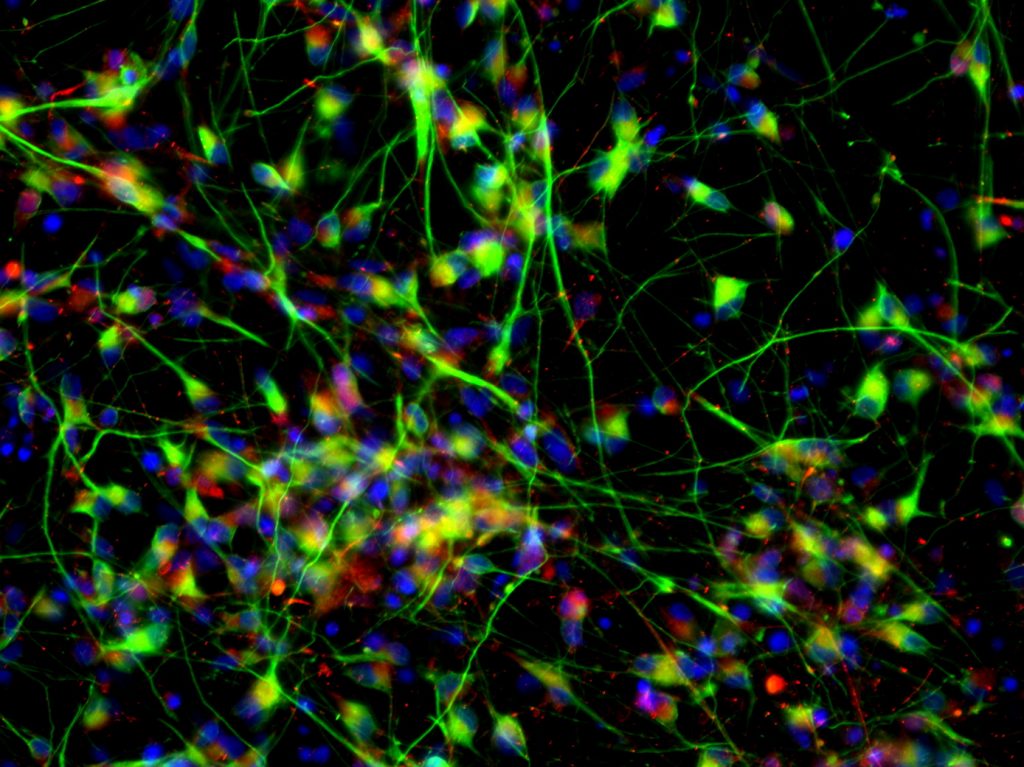
In this region, Levine has been studying the impact of the genetic deletions or duplications on the behavior and activity of neuronal brain cells. In contrast to single-gene mouse models, amazingly these studies use skin cells or blood cells obtained from patients living with either Angelman or Dup15q syndrome that are then reprogrammed and grown in the lab at UConn School of Medicine to develop into brain cells that mirror exactly each patient’s genomics.
“This is really unique, personalized medicine, and a better way for us to study the genomics and physiology of a real child’s brain cells and the possible role multiple genes may be playing leading to autism. All kids are different. We can analyze the physical structure of their neurons, measure intracellular calcium dynamics, and record functional electrical activity,” says Levine, who has received donations of cells from families for study. “It’s very exciting to pivot our autism research to translational research studying actual patient-derived human neurons.”
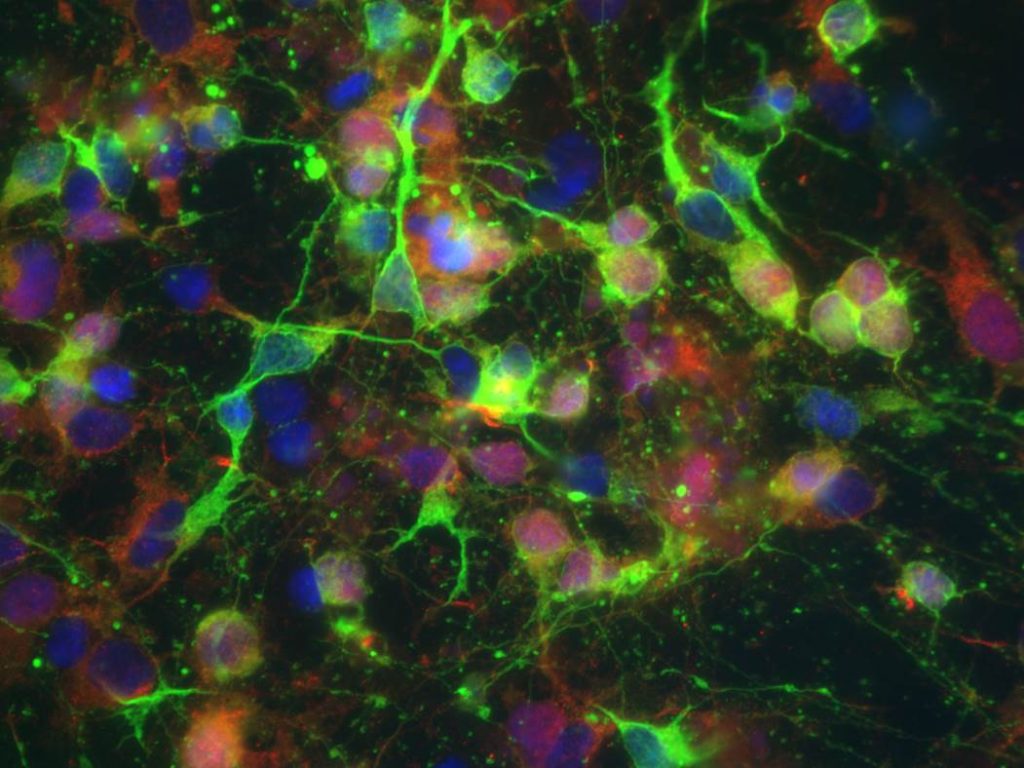
In his translational research efforts, Levine hopes to compare neurons of patients and identify what role various genes play in the brain cells of the patients with syndromes also causing autism, and how their brain cells behave differently, and even test what possible current drugs or new drugs might be beneficial to patients to improve both their symptoms and quality of life.
“There is so much to learn about the brain,” says Levine, whose work as a neuroscientist every day is driven by his fierce curiosity to learn more and more about how the brain works, and also inspired by the autism patients and families he has had the privilege to meet through the Eagles Autism Foundation over the last few years.
“The families I have met are so grateful for our autism research efforts, and more hope is on the way. It is a very exciting time for autism research and real, tangible progress and results with research advances and drug clinical trials,” says Levine.
“Our focus at UConn is finding the next generation of therapies,” says Levine, whose ultimate goal for his autism research is exploring the future power of gene testing and gene therapy for autism spectrum disorders and related-syndromes, including very early-on in life whether in-utero or during a young child’s life.
“It’s challenging, but the goal is gene therapy to reduce the expression of any uncovered genetic mutations or find a way to silence these problematic genes in neurons. Finding a way to do so, would have a significant effect on autism spectrum disorder patients,” Levine says.
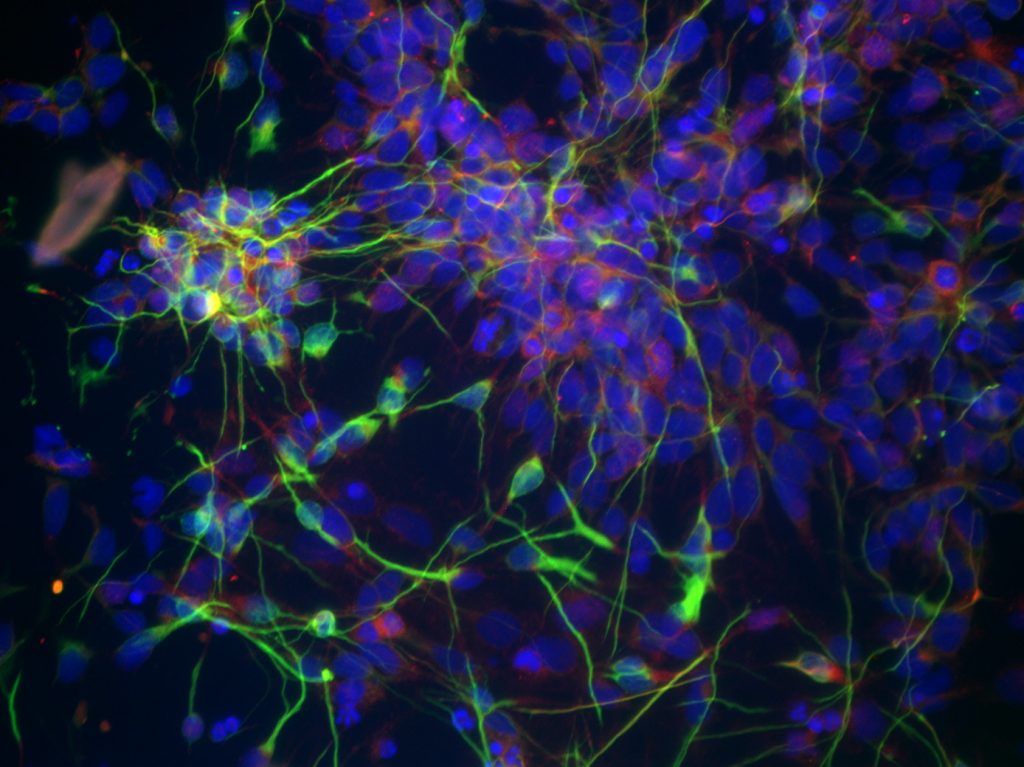
His research team has already shown there is a driver gene of UBE3A, which breaks down other cellular proteins in neurons, which can be either under- or overexpressed in the Angelman and Dup15q syndromes. But Levine and his team are turning their attention and focus to other genes in that same 15q11-q13 region such as GABA-A receptors and HERC2 that could also be contributing to autism spectrum disorders.
“If we can better understand the common pathway in the brain for these two genetic syndromes that lead to autism, we may someday understand other forms of autism, especially what causes behavioral issues such as loss of verbal communication, cognitive deficits, and impaired motor-function skills,” says Levine.
“I love being a part of this awesome Eagles Autism Foundation effort,” says Levine of UConn medical school’s Department of Neuroscience. “They are raising more and more funding for advancing autism research every year, including basic research funding. The better the Eagles team does, the more money that is raised. I am rooting for the Eagles and more winning touchdowns helping to advance our scientific insights into autism.”
In addition to transformational research project funding like Levine’s, the proceeds are also heartwarmingly supporting community grants to organizations enhancing the lives of those affected by autism.
“This year’s scientific review process was one of the most competitive evaluations we ever had,” says Jeffrey Lurie, chairman and CEO, Philadelphia Eagles. “The number of submissions we received in such a short period of time speaks to how much the field of autism research and care has evolved. For far too long, autism was misunderstood, underfunded, and under-researched. While there is still more work to be done, we are now seeing autism being prioritized at the highest level by some of the most recognized institutions around the world. We thank this year’s recipients for their support of the autism community and hope their groundbreaking work inspires others to follow in their footsteps.”
The 8th annual Eagles Autism Challenge presented by Lincoln Financial will take place on Saturday, May 17, 2025. To register for the event, visit EaglesAutismChallenge.org. The Eagles Autism Foundation is offering a 50% discount on registration using promo code: LETSHUNT.
For more information on the 2024 scientific review process and all the funded institutions, visit: EaglesAutismChallenge.org/our-impact-2024/.
